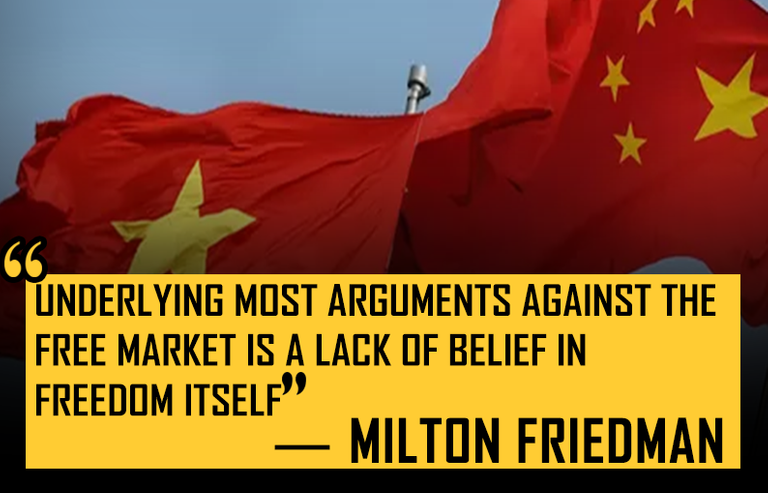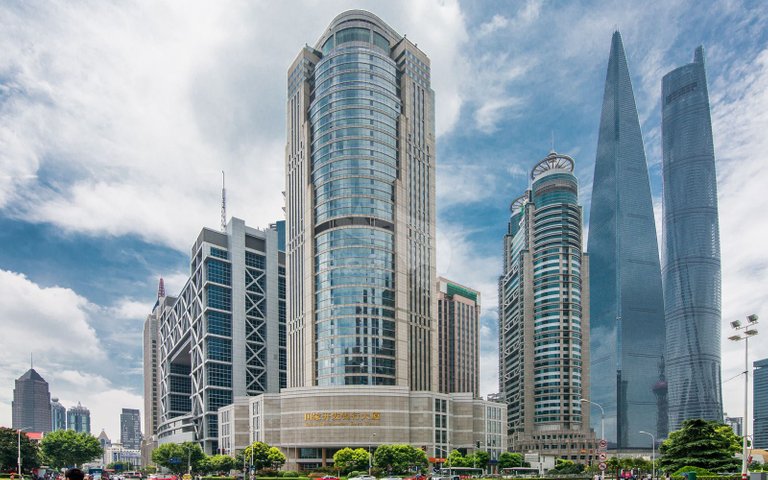
Whether we like it or not China and Vietnam are two successful examples of the political and economic evolution from a closed communist system to a more open society, with a very successful free market economy (with certain regulation and state controls). When talking about these two systems we are not only talking about sustained economic growth and development but, more generally, about more integrated societies, where social mobility through education and individual effort has transformed their social hierarchy.
The history of these changes is widely known, but for those who do not know here's a brief summary. Vietnam, in its post-colonial stage, was a country divided in two. In the 1960s Vietnam defeated the United States in a bloody war that led to the unification of the two sides. Those which, from the 1980s onwards, followed a process of reform and economic opening (Doi-Moi). Evidently, the political and social leaders learned the lesson of the terrible war and sought (and found) ways to preserve a rather closed political system with an economy that was increasingly open to the world and to the individual initiative of its inhabitants. It helped greatly in this process of evolution and revolution that the major nations of Southeast Asia accelerated their process of openness and economic growth, and were willing to actively assist them in their development efforts.
In the case of the People's Republic of China, the traumatic experience of the Cultural Revolution (1966-1974), Richard Nixon's trip to China in 1972 and the political rehabilitation of Deng Xiao Ping in 1978 paved the way for his economic revolution from the 1980s onwards, which has provided sustained economic growth at rates of over 9% for many years.
There are common elements worth highlighting between China and Vietnam success:
1.- Careful design of public policies that were able to channel a period of intense economic and social changes. In the case of China, with the valuable help of Institutes and universities in Singapore and Hong Kong, which were responsible for co-designing appropriate roadmaps, considering (and this is fundamental) the political and social particularities of the country.
2.- A social opening in both countries that provided more individual and collective freedom to the different social actors and people. Here a very liquid process of social mobility could be observed, which continues to this day. That is, the importance of individual effort. And the necessary efforts from the different parts of the society to a collective whole.
3.- A very large and focused effort to modernize education, from a totalitarian curricular to one that fosters individualities and people's strengths, in addition to teamwork. This process was flexible enough to adopt, within a short time, the contributions of leading universities in Asia and the developed world.
4.- A wisdom to combine national and identity characteristics (essential and peculiar to their culture) with the knowledge and processes that came from outside. These two nations quickly adapted to the reality of globalization, with its ups and downs.
Resilient populations who knew how to adapt to the traumatic vicissitudes of their recent history, always looking ahead and understanding that they could be masters and goldsmiths of their own destiny.
Despite what it may seem, both nations have a very profound mystical and religious current, which is rooted in different religious creeds and teachings of a millenary culture. It is this characteristic that has provided them with unusual resilience during periods of great political turbulence, and with a speed of catching and seizing good opportunities each time they were presented with them.
7.- Both governments and individuals knew how to forge an evolutionary value scale that gave meaning to this process and their individualities could be based on a profound meaning. At this point, there was the intersection of the millennial culture, a constantly changing education of modernity, religion and mystical belief, and the keys to the most nuclear currents of the nation and Asia.

Source
In the end, investment in people, education and good and wise public policies were the elements that were able to bring together and crystallize a process of openness and development that is unparalleled in contemporary history.
Something important to mention is its political authorities, which were able to restore autonomy and initiative to the individual (although not yet fully), and to restore confidence in them. In total contrast to Marxist political practice, which sought in its own experience to subsume the individual vital pulse in an amorphous and anonymous collective. At the same time, they left ideological pride aside and built bridges of knowledge and experience to other peoples and regions that could contribute positively to their experiences and processes.
Today, Vietnam and the People's Republic of China have not only become full citizens in the concert of nations, but their positive influence is already being felt in many corners of the globe. And it is not only an economic, trade and investment issue, but also, much more fundamentally, a question of becoming fundamental players in a world that is spinning ever faster and needs the greatest and best impulses in order not to derail its crazy race for the twenty-first century.

- China's Economic Growth: Cause, Pros, Cons, Future
- Vietnam: The Quiet Economic Success Story Of Asia
- An economic success story: How Vietnam became Southeast Asia’s top performer

Posted from my blog with SteemPress : http://blackliberal.vornix.blog/2018/07/07/free-market-china-and-vietnam/
Source
Direct translation without giving credit to the original author is Plagiarism.
Repeated plagiarism is considered spam. Spam is discouraged by the community and may result in action from the cheetah bot.
More information on Image Plagiarism
If you believe this comment is in error, please contact us in #disputes on Discord
Please note that direct translations including attribution or source with no original content is also considered spam.
Hi @blackliberal, you have received an upvote from
Adam.Tran. I'm the Vietnamese Community bot developed by witness @quochuy and powered by community SP delegations.removed upvote, @informationwar does not approve of copying and pasting material.
Original source:
http://ellibero.cl/opinion/vietnam-y-china-de-la-revolucion-al-capitalismo-exitoso/
@blackliberal you were flagged by a worthless gang of trolls, so, I gave you an upvote to counteract it! Enjoy!!